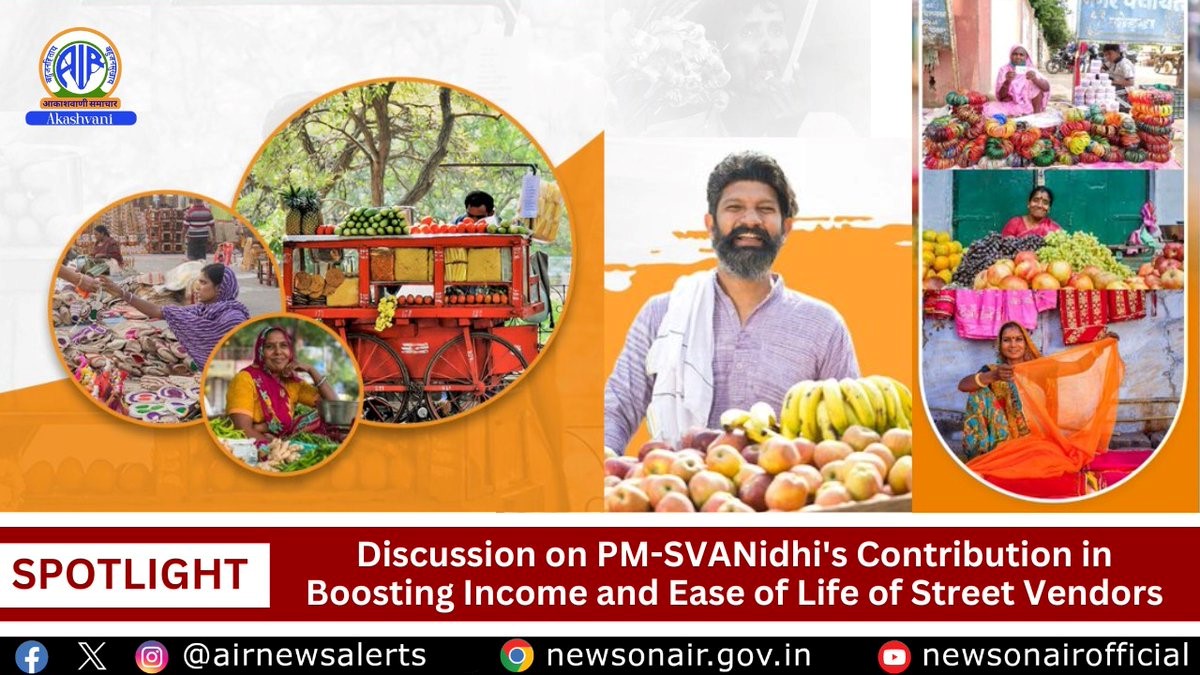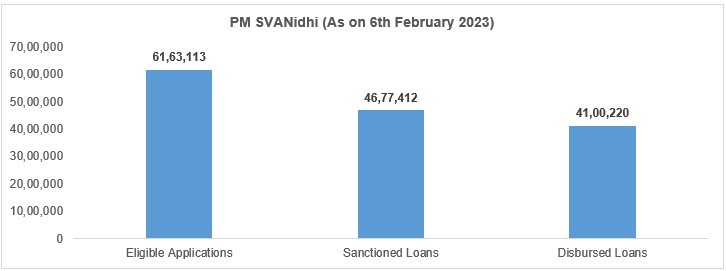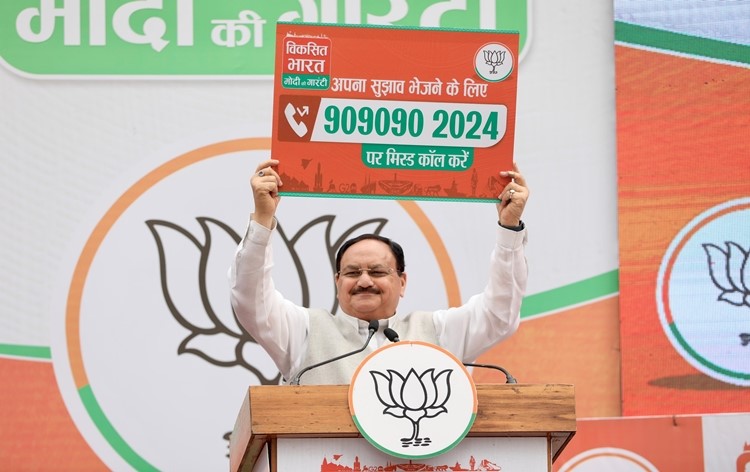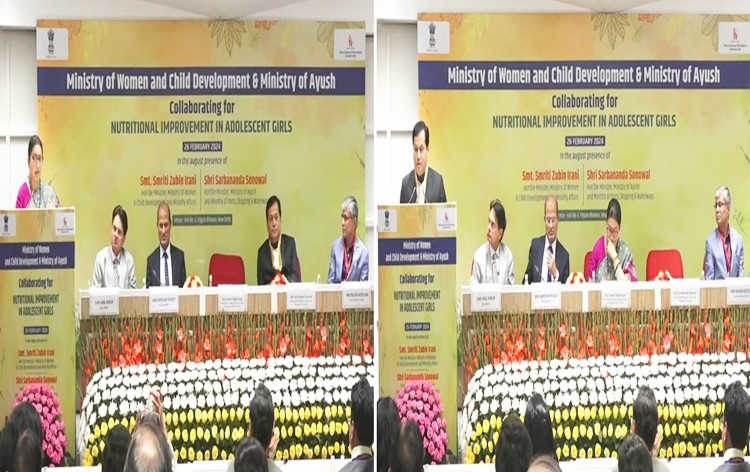PM-SVANidhi's Contribution in Boosting Income and Ease of Life of Street Vendors

Context:
- PM SVANidhi was launched in 2020 to help street vendors resume their livelihood impacted by the Covid-19 lockdown, by offering them affordable working capital loans.
Key Details:
- A study that evaluated the impact of the PM Street Vendor’s AtmaNirbhar Nidhi (PM SVANidhi), a small working capital loan scheme for street vendors, has found that the first tranche of `10,000 led to an additional annual income of `23,460 for each beneficiary.
- The study, commissioned by the Union Ministry of Housing and Urban Affairs, was carried out between January and June last year by the Centre for Analytical Finance of the Indian School of Business (ISB).
- The report will be used by the Ministry for its own assessment of PM SVANidhi and is not likely to be made public.
About PM Street Vendor’s AtmaNirbhar Nidhi (PM SVANidhi):
| This is a central sector scheme supported by the Ministry of Housing and Urban Affairs. Street vendors in urban areas will be able to apply for Working Capital (WC) loans of up to Rs 10,000 with a tenure of one year, repaid in monthly payments. No collateral is taken by the lending institutions for this loan. |
Objectives
- To facilitate working capital loans of up to $10,000
- To encourage regular repayment
- To reward digital transactions.
Eligibility:
- Street vendors who have been issued a Certificate of Vending or Identity Card by Urban Local Bodies (ULBs).
- Vendors who have been identified in the survey but have not yet received a Certificate of Vending or Identity Card; for these vendors, a provisional Certificate of Vending will be generated through an IT-based platform.
- The permanent Certificate of Vending and Identification Card should be issued to such vendors by ULBs immediately and positively within a month.
- Street vendors who were not included in the ULBled identification survey or who began selling after the survey was finished and received a Letter of Recommendation (LoR) to that effect from the ULB / Town Vending Committee (TVC).
- The vendors from nearby developments, peri-urban areas, and rural areas sell within the ULBs' geographic boundaries and have been issued a Letter of Recommendation (LoR) to that effect by the ULB / TVC.
Benefits:
| As depicted in the below graph, according to the PMSVANidhi portal, 46,77,412 loans have been sanctioned out of 61,63,113 eligible applications and 41,00,220 loans have been disbursed as on 6th February 2023. |

- Collateral-free loan: The total amount is Rs. 10,000, and there are no security requirements in order to obtain the loan amount. Candidates have a chance of receiving a sizable loan with prompt repayment.
- For instance, if the applicant completed all the loan payments on time, they would be given the choice to borrow a substantial amount the next time they needed a loan.
- Interest subsidy:A 7% interest rebate is due from merchants who take out working credit loans through the PM vendor programme.
- This sum shall be paid to debtors on a quarterly basis. The end of this interest subsidy is March 31, 2022.
- Hassle-free application process:In general, applying for a loan is a difficult endeavour, but the central government offers a simple application process for this loan programme.
- To apply for this loan, users must go to the SVANidhi Yojana website and provide the necessary information.
- Cashback incentives: Users who choose digital transactions can take advantage of reward promotions. With the assistance of a sizable network of reputable banks and digital payment providers, vendors can embrace digital methods.
- Easy to check loan status:On the official website of this programme, the central government yojana also gives you access to check the status of your loan application.
- The user must provide their login information, which they receive upon applying for this loan, along with their password.
- Anyone can, at any time and from anywhere, check the status of their loan application within just a couple of minutes through their login credentials.
How PM-SVANidhi Boosts Income:
- Breaking the Cycle of Dependence:The scheme offers collateral-free working capital loans of up to ₹50,000 with a 7% interest subsidy. A recent SBI study revealed a significant impact, with the first loan itself leading to an average annual income increase of ₹23,460 for beneficiaries.
- This financial boost helps them escape the clutches of informal lenders with exorbitant interest rates, allowing them to invest in their businesses and break the cycle of debt.
- Investing in Growth and Enhancing Sales:With access to working capital, vendors can invest in better inventory, equipment, and marketing strategies.
- As of December 2023, over 89 lakhstreet vendors have benefitted from the scheme, potentially leading to widespread improvements in their sales and profitability.
- Unlocking Future Opportunities:By building a formal credit history through timely loan repayments, vendors become eligible for future loan opportunities from banks and financial institutions.
- This paves the way for further business expansion and income growth, fostering a path towards long-term financial stability.
Enhancing Ease of Life and Building a Sense of Security:
- Financial Security and Reduced Vulnerability:The scheme provides a safety net for vendors facing unexpected expenses or emergencies.
- Access to formal credit empowers them to manage financial challenges and reduces their dependence on exploitative informal lenders.
- Recognition and Dignity:Formalizing their businesses through the scheme acknowledges street vending as a legitimate profession, fostering a sense of dignity and social recognition within the community.
- Building a Secure Future:Loan repayments open doors to government social security schemes like health insurance and pension plans, offering them long-term security and peace of mind.
Digital Inclusion and Entrepreneurial Spirit:
- Digital Literacy and Inclusion:The scheme encourages cashless transactions through training and cashback incentives, promoting digital literacy and financial inclusion among street vendors.
- This empowers them to participate in the digital economy and access a wider range of financial services.
- Nurturing Entrepreneurship:By providing access to resources and empowering them to manage their businesses effectively, the scheme fosters a spirit of entrepreneurship among street vendors. This sense of ownership and control over their businesses contributes to their overall well-being and drives innovation within the informal sector.
Challenges and Opportunities:
While the PM-SVANidhi scheme has witnessed remarkable success, ensuring its long-term sustainability and reaching all eligible vendors requires addressing certain challenges:
- Ensuring Timely Loan Repayments:While not a recent statistic, maintaining high loan repayment rates is crucial for the scheme's long-term viability. Continued efforts to promote financial literacy and responsible borrowing practices are essential for achieving this goal.
- Reaching Out to Remote Areas and Marginalized Communities:Effective outreach and awareness campaigns are necessary to ensure all eligible vendors, especially those in rural and remote areas or belonging to marginalized communities, are informed about the scheme and can benefit from its offerings.
Closing thoughts:
- The PM-SVANidhi scheme is a powerful testament to the transformative potential of financial inclusion. By empowering street vendors and equipping them with the resources they need to thrive, the scheme not only improves their livelihoods but also contributes to the overall development and inclusivity of the Indian economy.
- As the scheme evolves and addresses existing challenges, it has the potential to continue making a significant impact on the lives of millions of street vendors across the country.
https://newsonair.gov.in/News?title=PM-SVANidhi-has-restored-the-dignity-of-street-vendors%2C-says-Union-Minister-Hardeep-Puri&id=477368
https://indianexpress.com/article/india/pm-svanidhi-boosted-annual-income-of-street-vendors-by-23000-study-9156475/
https://newsonair.gov.in/Main-News-Details.aspx?id=474242
https://www.iipa.org.in/cms/public/uploads/122501652172378.pdf
https://www.ibef.org/blogs/pm-svanidhi-micro-credit-scheme-for-street-vendors
https://pmsvanidhi.mohua.gov.in/akam/
https://twitter.com/airnewsalerts/status/1761048213040062552
Long-standing challenge of cross-border terrorism
Context
- External Affairs Minister Dr S Jaishankar stated that on the western front, the long-standing challenge of cross-border terrorism now elicits more befitting responses.
Key Details:
- He pointed out that Uri and Balakot sent their own message. Addressing the inaugural Pandit Hriday Nath Kunzru memorial lectures 2024 on theme Bharat and the World at JNU on Monday (26th February 2024), Dr Jaishankar said that India responds to cross-border terrorism strengthened by new tools of influence and disruptions with determination and fortitude.
India's Evolving Response to Cross-Border Terrorism:
- Shift from Restraint to Proactive Measures: India has moved away from a policy focused purely on diplomatic and political pressure. It now takes a more assertive approach with measures including:
- Surgical Strikes and Airstrikes: India has conducted targeted strikes (like Uri Surgical Strikes, Balakot Airstrike) against terrorist camps across the border, demonstrating that aggression will be met with a firm response.
- Strengthened Border Security: Increased troop presence, technological enhancements, and robust infrastructure have made infiltration far more difficult.
- International Pressure and Diplomatic Isolation: India has effectively highlighted Pakistan's role as a sponsor of terrorism on global platforms. This has led to:
- Growing International Condemnation: Pakistan is being forced to take action, at least outwardly, by countries wanting to maintain good relations with India.
- Financial Action Task Force (FATF) Scrutiny: Pakistan remains on the FATF's "grey list," impacting its ability to secure foreign investment, hindering its economy.
- Focusing on Internal Security: Along with border security, India has focused on counter-terrorism and counter-radicalization efforts within its own territory.
Outcomes of India's Stance:
- Deterrence: The potential for strong countermeasures has made Pakistan more cautious in harboring and supporting cross-border terrorism.
- Changing Global Narrative: The perception of India as a victim of terrorism has strengthened, giving it greater leverage in international diplomacy.
- National Morale: India's assertive approach has boosted national morale and sent a strong message that terrorism won't be tolerated.
https://newsonair.gov.in/News?title=India-now-elicits-more-befitting-responses-on-long-standing-challenge-of-cross-border-terrorism-along-Western-front%2c-says-EAM-S-Jaishankar&id=477999
Sankalp Patra Suggestion Campaign
Context
- BJP National President Jagat Prakash Nadda launched the party's nationwide campaign 'Sankalp Patra Suggestion Campaign' in view of the Lok Sabha elections 2024 on Monday (26th February 2024).

Disclaimer: Copyright infringement is not intended
Details:
- He also flagged off the “Viksit Bharat - Modi ki Guarantee” Raths to collect suggestions from the people for BJP's Sankalp Patra.
- He added that the aspirations of 'Viksit Bharat', 'Atmanirbhar Bharat', and 'Vishwamitra Bharat', which seemed unimaginable in 2014, are now becoming a reality under the leadership of Prime Minister Narendra Modi. He stressed that India is poised to take significant strides towards 'Viksit Bharat' during the Amrit Kaal.
About Sankalp Patra Suggestion Campaign:
|
Introduction to the Sankalp Patra Campaign
|
- An initiative by the Bharatiya Janata Party (BJP) in India aimed at engaging the public in policy-making and election manifesto formulation.
|
|
State-Level Initiatives
|
|
|
Uttar Pradesh: "UP Number 1 Sujhaav Aapka"
|
- The BJP launched this campaign ahead of state polls to actively involve the public in providing suggestions and feedback for shaping policies.
|
|
Delhi: Connecting with People
|
- The BJP extended the Sankalp Patra framework to Delhi, seeking to engage citizens for insights and suggestions to address local concerns and aspirations.
|
|
National-Level Impact
|
|
|
2019 General Elections: Manifesto Development
|
- The BJP utilized the Sankalp Patra framework to develop its manifesto, "Sankalp Patra," based on inputs gathered through crowd-sourcing and suggestion boxes across the country.
|
|
Continued Engagement
|
|
|
2023 and Beyond: Ongoing Initiatives
|
- Similar initiatives continue in various states, such as the "Aapno Rajasthan Sujhav" campaign in 2023, highlighting the ongoing commitment to soliciting public input in governance.
|
https://newsonair.gov.in/News?title=BJP-National-President-J-P-Nadda-launches-nationwide-%26%2339%3bSankalp-Patra-Suggestion-Campaign%26%2339%3b-in-view-of-Lok-Sabha-elections-2024&id=477989
MoU signed to achieve improvement in nutritional status of adolescent girls
Context
- The Ministry of Women and Child Development and the Ministry of AYUSH signed an MOU in New Delhi on Monday (26th February 2024) to achieve improvement in the nutritional status of adolescent girls in five Utkarsh Districts.

Details
- The event which was chaired by Women and Child Development Minister Smriti Irani and AYUSH Minister Sarbananda Sonowal was part of a wider collaboration between the ministries to leverage traditional knowledge, promotion of wellness through joint yoga protocols, and promote diet diversity through the consumption of locally grown wholesome foods.
- This collaboration aims to leverage traditional knowledge and promote wellness through joint yoga protocols, as well as encourage diet diversity by promoting the consumption of locally grown wholesome foods.
- The main goal of Poshan 2.0 is to tackle issues like stunted growth, malnutrition, anaemia, and low birth weight. One key aspect is promoting wellness through AYUSH, which focuses on maternal health, proper feeding for infants and young children, and treating malnourished kids.
| Nutrition plans rooted in traditional wisdom are already a key part of a government programme called Saksham Anganwadi and Poshan 2.0. This programme, run by the Ministry of Women and Child Development, utilises various methods to combat malnutrition, working closely with other government departments and state authorities. |
Key Features of Saksham Anganwadi and Poshan 2.0:
- Integration: The schemes integrate the Supplementary Nutrition Programme (SNP) under Anganwadi Services, Scheme for Adolescent Girls (SAG), and Poshan Abhiyaan into a single programme.
- Focus on Behaviour Change: The schemes emphasize behavior change communication (BCC) to promote healthy eating practices and improve nutrition awareness.
- Technology: The schemes use technology to improve the delivery of services, such as the use of mobile apps for monitoring and tracking beneficiaries.
- Convergence: The schemes converge with other line departments such as Health, Panchayati Raj, and Women and Child Development to ensure a holistic approach to nutrition.
https://newsonair.gov.in/News?title=MoU-signed-to-achieve-improvement-in-nutritional-status-of-adolescent-girls-in-5-Utkarsh-Districts&id=477992
Maryam Nawaz becomes first woman Chief Minister of West Punjab
Context
- In Pakistan, Maryam Nawaz, the daughter of three-time Pakistan Prime Minister Nawaz Sharif, became the first woman Chief Minister of West Punjab on Monday (26th February 2024).

Details:
- In the recently concluded elections, PML-N won 137 seats in the Punjab Assembly while independents backed by former Prime Minister Imran Khan’s Pakistan Tehreek-e-Insaf (PTI) won 113 seats.
India and Pakistan's political relations are historically complex and strained, with several major factors shaping their ongoing challenges:
Roots of the Conflict
- Partition of India: The violent division of British India in 1947 along religious lines left deep scars, with unresolved territorial disputes and mass displacement fueling animosity.
- The Kashmir Conflict: The contested region of Jammu and Kashmir has been a major flashpoint since the partition, leading to several wars and ongoing border skirmishes.
- Cross-Border Terrorism: Pakistan's support for militant groups targeting India, particularly in Kashmir, is a major source of tension and has repeatedly derailed attempts at peace talks.
Manifestations of Ongoing Tension
- Diplomatic Impasse: Frequent suspensions of bilateral dialogues and heated rhetoric from both sides contribute to the hostile atmosphere.
- Trade Restrictions: Economic relations are limited, with periodic trade suspensions and tariffs hindering potential benefits from cooperation.
- Cultural Exchange Hindrances: People-to-people contact has diminished, making it difficult to bridge the understanding gap between the two nations.
- International Allegations: India has repeatedly accused Pakistan on the international stage of sponsoring terrorism, while Pakistan alleges human rights abuses in Indian-administered Kashmir.
https://newsonair.gov.in/News?title=Pakistan%3a-Maryam-Nawaz-becomes-first-woman-Chief-Minister-of-West-Punjab&id=477993








